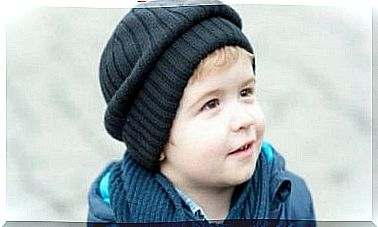How We Can Promote Children’s Emotional Intelligence

So let’s look at how we can promote children’s emotional intelligence .
What is Emotional Intelligence?
Many skills that lead to success in life cannot be measured. Several studies have come to this conclusion.
A brilliant brain is of little use to us if we cannot deal with emotions. Being able to empathize with others is important and essential.
Most parents know that emotional education is part of raising their children. Family relationships play an important role in this. You decide for the good of all.
However, relationships are often the cause of conflict. Negative feelings arise that can burden the whole family.
A peaceful, calm, and happy home is the perfect environment. Only such an environment can promote children’s emotional intelligence.
Parents are role models for their children. Therefore, you need to be aware of your own feelings. That means recognizing them. In the next step you should ask yourself what the reasons for the respective emotional state are. Possible consequences should also be considered.
How can we develop children’s emotional intelligence?
We need to teach our children to talk about what they are feeling. This is the first step. You should start doing this as early as possible. You have to learn to get in touch with yourself. This is the only way they can express themselves and get air.
Every situation in everyday life can be a good opportunity to practice this.

It is also important that they perceive any kind of feeling. There are positive feelings – for example, they are happy and satisfied. But there are also negative feelings. This can bring sadness or anger. However, both must be recognized and named. Negative feelings should not be suppressed or hidden.
It is also important to look for the cause of feelings. Children should find out what is causing their current condition and why. In this way you will gain more emotional awareness.
Alternatives should be shown, especially in the case of negative feelings. For example, if your child is angry, they can still react in more than one way. It is up to you to identify these options. Also make it clear that we do not always make the best decision automatically.
In many cases, feelings are responsible for our thoughts and actions. Therefore, learning more about it can help us become more empathetic. This also means that we think about our reactions.
Characteristics of emotionally intelligent parents:
- You have physical and mental means of self-control.
- They rely on facts, not prejudice. First impressions are not everything.
- You can also see the good sides. This enables them to turn negative into positive.
- They take responsibility for their actions and learn from mistakes.
- You can set limits. If necessary, stand firm.
- They are also open to new people.
How can you work on emotional intelligence with your children?
Our children experience a wide variety of emotions from an early age. You have to learn to use it in a positive way. This is the only way they can learn the right behavior.
This ensures that they have good social skills. This will enable them to actively participate in society. And your satisfaction benefits from it.
Here are some things you can work on with your child:

communication
- Create a room where they can speak openly. Listening is just as important. There must be space for that too.
- Replace closed questions with open questions.
Recognize strengths
- Praise your child for everything they achieve. You should also appreciate the effort that went into it.
- Failure in behavior should not be denounced.
- Instead, affection should be encouraged.
Help them through difficult times
- Make them feel safe and calm.
Help them deal with their emotions
- Help them be open about a situation. Then you can look for a solution together.
- Approach conflicts in a way that your child can learn from you. Don’t forget that children see your behavior and imitate it.
Boosting children’s emotional intelligence will do you both good. Communication at home also benefits from it. It will help your children develop. You will learn to decide for yourself and to act accordingly.









